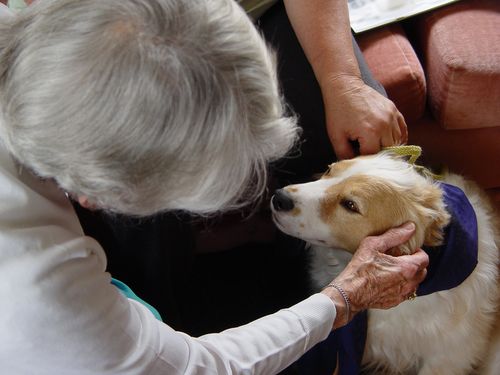What You Need to Know About Memory Care
There are many types of dementia, all of which cause increasing memory loss as the condition progresses. Memory care is a type of specialized care that helps people with different forms of dementia during the early stages of the disease. Not only does memory care involve greater supervision, but it also includes services that help stimulate memory. It might even slow the progression of the disease.
The Special Needs of Seniors with Dementia
Some loss of memory and “forgetfulness” are a normal part of aging. The memory loss associated with dementia is not. The disease results from changes in the brain that also cause other symptoms affecting someone’s ability to think and communicate including:
- Trouble finding the right words
- Confusion
- Loss of sense of direction
- Mood changes
- Difficulty completing normal tasks
- Inability to focus
- Difficulty reasoning
- Apathy
Even in the early stages of dementia, the person might struggle to adapt to change. They feel more comfortable following routines and avoid new situations. Providing them with a safe, familiar environment like in a memory care nursing home is one way that memory care helps dementia patients feel comfortable and allows them to experience more enjoyment in everyday activities.
Stages of Dementia
Dementia is a progressive disease, meaning that the person’s symptoms continue to get worse over time. The disease has three general stages including mild, moderate, and severe. Each of these stages can be further broken down into more specific stages according to the symptoms they experience.
Every person who has dementia is unique. They might experience some or all symptoms associated with a specific stage and for various lengths of time. The stage they are in will determine whether memory care is beneficial for them. It also determines the best type of memory care for their condition.
People in the early stages of dementia often do well in memory care communities. Later, they might require extended services as the disease progresses. When considering the best course for a loved one, starting care earlier is better than later. A memory care plan can help them more when the symptoms first appear. Waiting until they become overwhelming for the family and the person’s caregiver makes it more difficult for everyone. Moving the person to an assisted living facility that offers memory care during the early stages of dementia will help them adapt to their environment so they are as comfortable, safe, and happy as possible as the disease progresses.
Assisted Living Vs Memory Care: What’s the Difference?
Assisted living facilities provide assistant care to seniors who are no longer able to perform everyday tasks on their own. They may, or may not, have medical problems that require additional medical care. People in assisted living require different levels of care depending on their limitations. The staff offers help with bathing, changing clothes, meal preparation, providing transportation to appointments, and much more.
Assisted living with memory care offers services from a staff trained to meet the needs of dementia patients. They help with the activities of daily living while also addressing the special needs of people suffering from memory loss.
With memory care, there is more supervision and a higher number of safety checks made on patients daily. Sometimes facilities fit patients with a tracking device that prevents them from wandering off the premises.
Some dementia patients lose their appetite, making it difficult to feed them a healthy diet. The memory care staff knows how to prepare and present meals to make them more appealing.
They understand how the different types of dementia manifest, the reasons behind the patient’s behavior, how to respond to their behavior, and how to communicate with them. They follow a rigid routine that helps dementia patients do better.
The staff knows the differences between the different forms of dementia and how the residents are likely to respond to different situations and any medications they are on that might cause changes in their behavior. Knowing what to expect helps them respond to the resident in a patient, positive, and caring way. Communicating with dementia patients is challenging, but it is possible and beneficial to you and them.
Communicating with Dementia Patients
Family members who take on the role of caregiver for a loved one are often overwhelmed by the responsibility. They don’t expect the mood swings and the changes in behavior and personality that sometimes occur as the disease progresses. Sometimes the person “acts out” because they don’t know how to express their thoughts or feelings in any other way. A caregiver might think the person isn’t capable of communication.
They might not understand why the person becomes agitated when they ask them a simple question. It isn’t the subject of the conversation that agitates them; it’s their confusion and inability to understand what the caregiver is asking them.
Like many components of the disease, communication requires a specific approach when dealing with dementia patients. It is possible to communicate more effectively with a person who has dementia if you take the following steps to help get and keep their attention:
- Always approach the person in a pleasant and respectful manner. Don’t just rely on words. Be aware of your facial expressions and tone. Implement physical touch and consider the use of pictures and symbols that they can understand.
- Choose a quiet place where there aren’t any noises or activities to distract them. Get their attention and identify yourself, even if you are a close family member. Maintain eye contact throughout the conversation.
- Speak slowly, distinctly, using simple words and sentences. Use proper names instead of pronouns or abbreviations.
- Ask simple questions, preferably those that require a yes or no answer.
- Be patient. Give your loved one as much time as they need to reply. Stay alert to their body language or cues that might represent nonverbal responses.
- Don’t hammer on the same question. Repeat it a second time if needed. If they still don’t respond, take a break and then rephrase the question. Respond with affection and reassurance, even if you don’t get the response you want. Never argue or try to convince them that they are wrong.
- Share old photographs and talk about past events. Dementia patients remember details of events that happened many years ago more clearly than those that happened recently.
- Keep your sense of humor. Your loved one will probably enjoy laughing along with you.
When considering placing a loved one in assisted living with memory care, pay a visit to the facility and observe the staff. The interactions between the staff and their residents are important to the quality of care they offer. Note whether the staff responds to their residents with care, respect, and genuine interest in what the resident wants or needs.
Giving the resident choices helps them retain their dignity and individuality. They aren’t children; many of these people have lived long, successful lives. They deserve to be treated with dignity and respect, not like a child.
How Socialization Helps
Sometimes people with dementia withdraw from social settings. Interactions with other people are very important to their wellbeing. Activities that encourage socialization give them a greater sense of belonging and personal worth. It reduces the feelings of isolation that can lead to depression.
Socialization also plays an important role in memory care. It slows down the progress of dementia, creates a stronger connection to their location and the time, and helps them maintain focus. Many activities in memory care encourage interaction with other seniors, young adults, and even pets.
Any assisted living with memory care program should offer activities that encourage socialization. Keep in mind that even passive activities help. For example, sitting in an audience while watching a play or musical performance makes them a member of the audience. Music is often used to engage dementia patients
Repetition is a big part of memory care. It encourages familiarity and a stronger sense of comfort. This applies to social activities, too. Meeting for the same activities at the same time makes participating more enjoyable for the dementia patient.
The Benefits of Dog Therapy
Dogs are the most dependable companion’s anyone can have. They are always happy to see you and they thrive when you keep them on a schedule. Those characteristics are some of the reasons dog therapy is so beneficial to dementia patients.
Dog owners probably aren’t surprised that dogs can help reduce anxiety and depression in dementia patients. That’s why so many dementia and Alzheimer’s care facilities now have a resident dog. In some cases, patients who haven’t spoken to other people for years have responded verbally to a dog.
Therapy dogs are becoming more common in dementia care facilities due to the amazing results they’ve achieved in comparison to those obtained by humans.
The bond between a human and their dog is a strong one. Having to leave a family pet behind can be devastating to anyone, let alone someone dealing with the progressive stages of dementia.
Villas at San Bernardino is “pet friendly” and includes a dog yard on-site. Residents can bring their canine friends with them when they move into assisted living with memory care. Not only does this add another constant to their relocation, but it also gives them the companionship of a family pet that is an important part of their life. Dogs are more understanding and forgiving when their humans forget them or don’t act the same. Even if the person can’t take their family pet along, they might benefit from visits along with those from their other close family members.
Choosing Assisted Living or Memory Care for Your Loved One
Making the choice to put a loved one into assisted living or memory care is difficult emotionally and, sometimes, legally. If your loved one doesn’t have a power of attorney in place, you don’t have the legal right to make the decision for them.
People who don’t have medical issues but aren’t able to perform normal daily tasks might choose to move into an assisted living facility without any encouragement from you. It provides them with the help they need while also allowing them to live their lives freely and without the responsibilities of home ownership.
If your loved one has dementia and you have their medical power of attorney, you have the legal right to make medical decisions for them. Otherwise, the legal process is more complicated and expensive. The only legal way to force someone into assisted living or memory care is by obtaining guardianship.
Guardianship requires you to go before a judge and, in some states, a panel of professionals who determine if your loved one is mentally competent to make their own decisions. Even if the person only has moments of clarity and they want to stay at home, the court will usually rule in their favor. That means you could end up spending a lot of time and money on a legal process only to have the court rule against you.
A better option is to start talking with your loved one about their future care as early as possible. During the early stages of dementia, they still have the ability to think about the type of care they want. They can even be part of the process of finding a facility that offers everything they need to make them feel “at home.”
Explain to your loved one that their help in making these decisions will take a lot of financial and emotional burden off of you. After a diagnosis of dementia, they can no longer create a medical power of attorney. But they can make decisions about where they want to live the rest of their lives. You can also explain that getting into memory care early on will help slow the progression of their disease. Once their disease progresses, the environment will already be familiar to them and provide them with a high level of security and comfort.
Why Choose Villas at San Bernardino
Villas at San Bernardino offers a high quality of personal care for seniors needing assisted living and/or memory care at all levels. We are situated in a beautiful, activity-rich environment and employ experienced staff members who are trained to provide flexible services and comforting care that is appropriate for every individual resident. Choose from studio or one-bedroom apartments. Our facility accommodates vehicles for those residents who still drive and is pet-friendly for those who want to bring their pets along. Contact us today to learn more about our services or to schedule a tour of our facility.





Leave a Reply